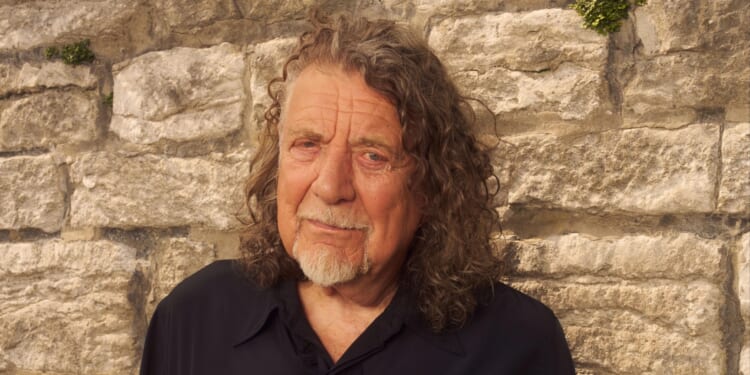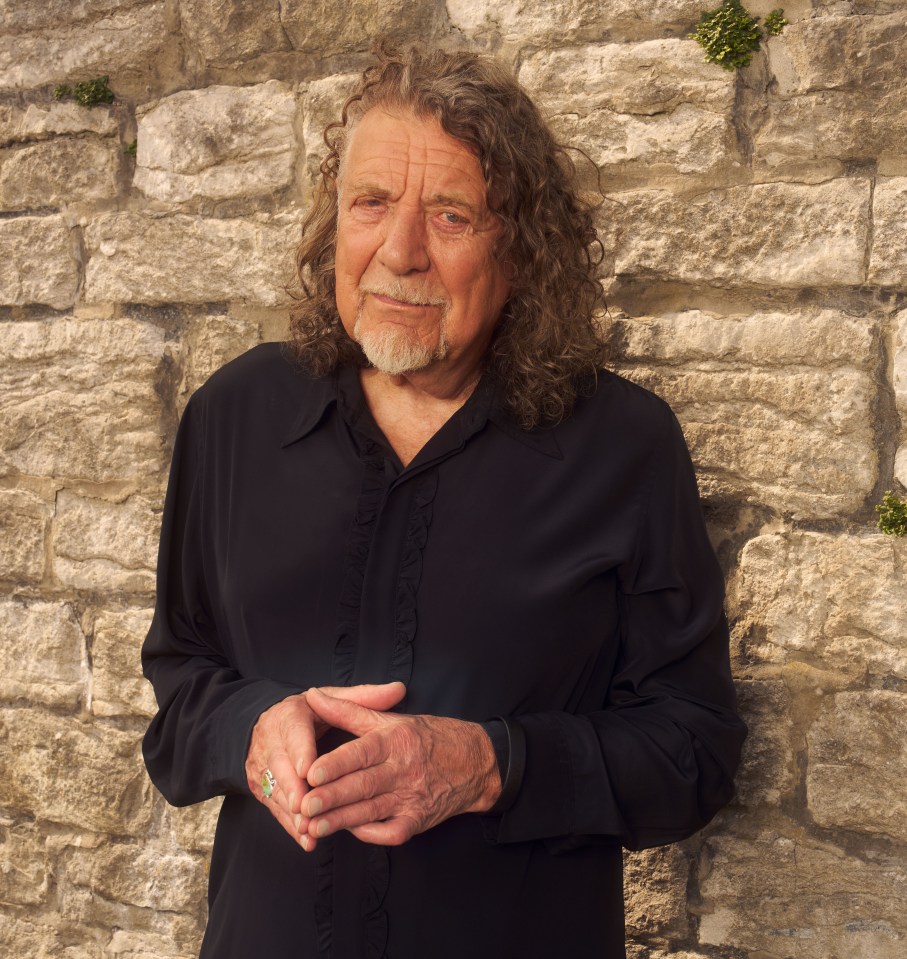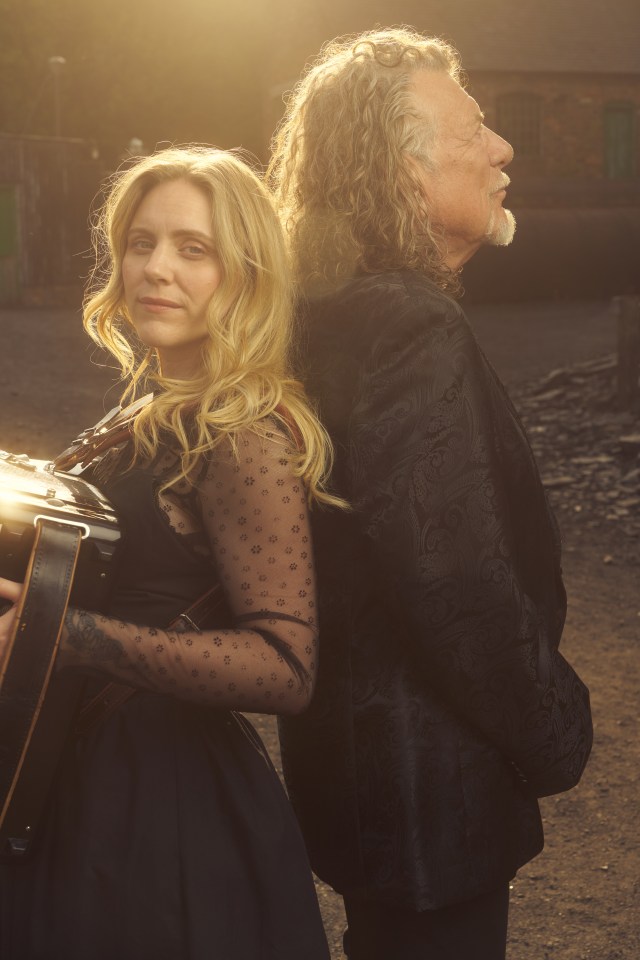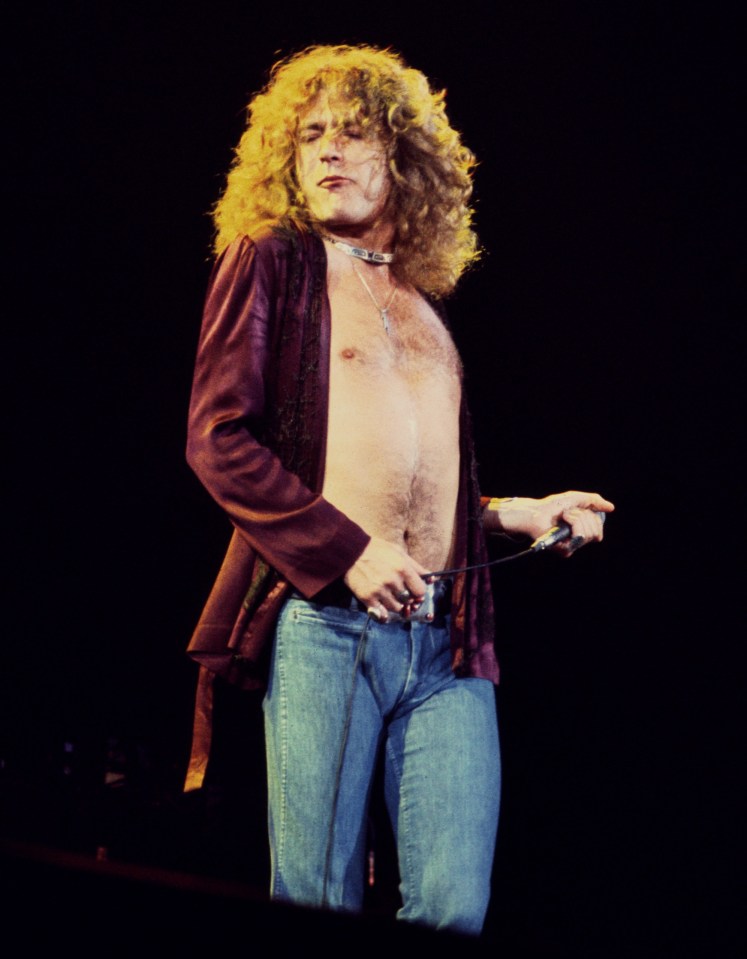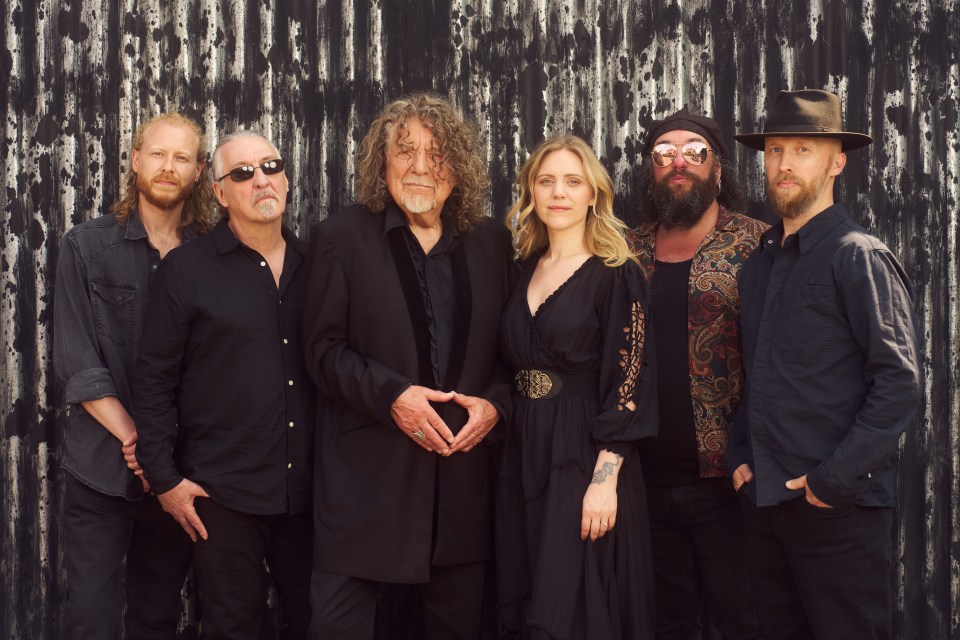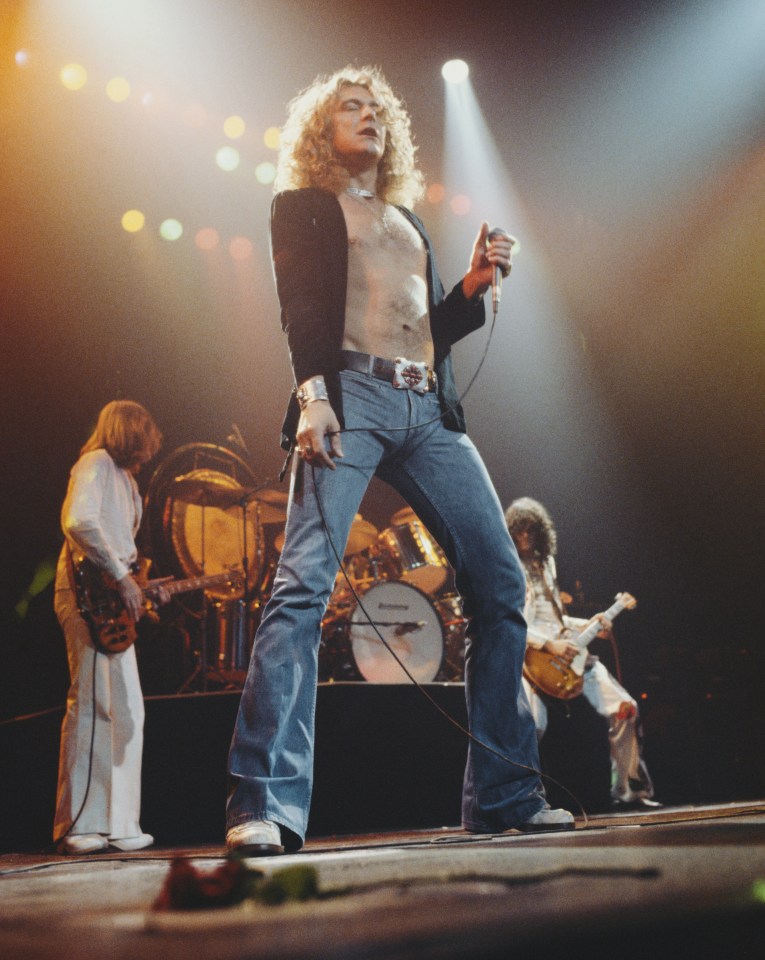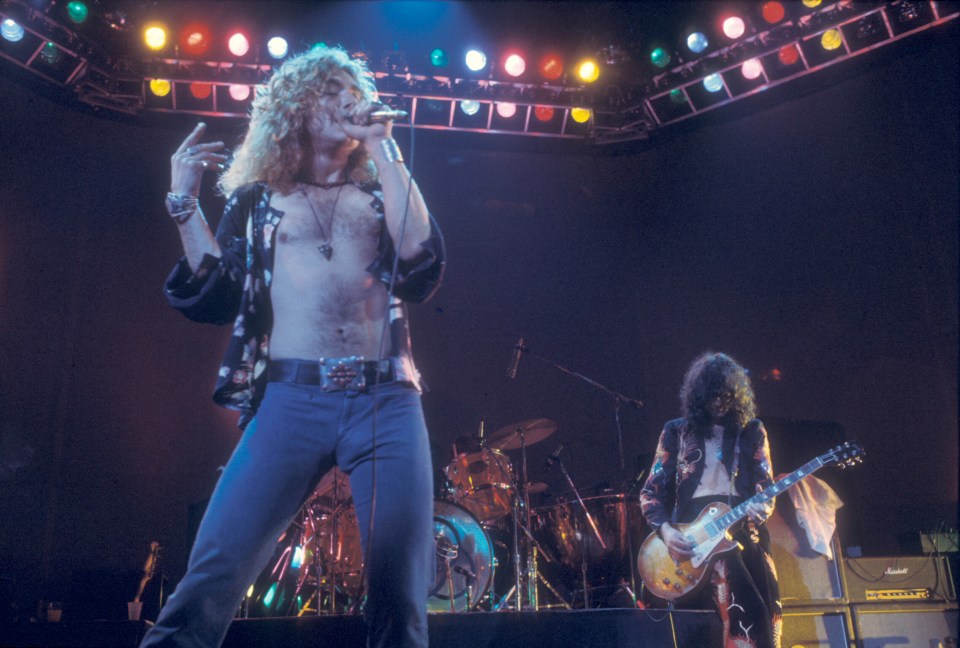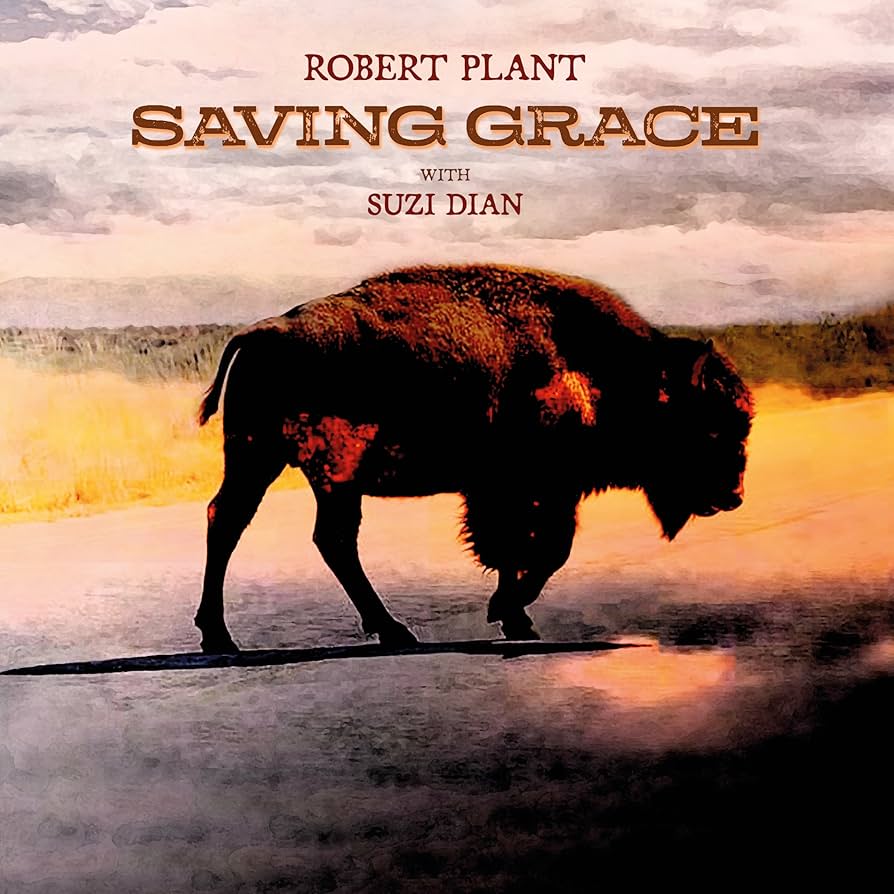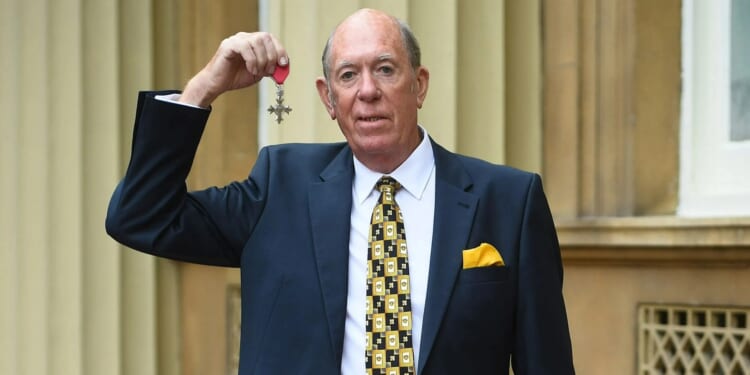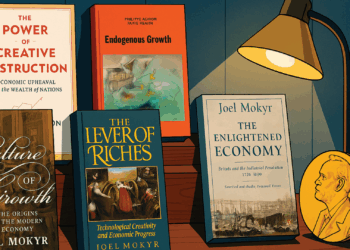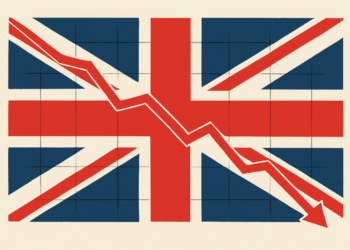ROBERT PLANT is reflecting on his current situation – and nodding to his illustrious past.
“I can’t say I have the ambition to be a big deal any more,” says the bearer of popular music’s mightiest vocal cords.
“Because I’ve been in so many big deal situations.”
His latest venture is a far cry from the years he strode the world stage as singer in Led Zeppelin, a rock god with golden shoulder-length curls and swagger to match.
It is smaller in scale than the high-profile collaboration with bluegrass singer Alison Krauss, which produced their much-loved albums Raising Sand and Raise The Roof.
And it seems more under the radar than his previous band, the Sensational Space Shifters, who joined him on a couple of fine LPs in the 2010s.
For the past six years, Plant has surrounded himself with acoustic musicians who all live within striking distance of his Worcestershire stomping ground, which he affectionately refers to as “The Shire”. (Led Zep fans, note the familiar Tolkien reference.)
Maybe he’s come full circle by going local because, as he points out, his grandfather was “called Robert Shropshire Plant, the founder of a renowned Black Country brass band”.
He says: “My house is in Worcestershire but, if I cross the fence in the wood, I’m in Shropshire and another fence borders Staffordshire.
“If I go three miles west, I hit the River Severn, which to me is the beginning of the Celtic kingdom,” he adds in acknowledgment of his love of the Welsh borders.
Talking to this enduring sonic explorer, I sense that working with the outfit known as Saving Grace is giving the 77-year-old a real sense of satisfaction and purpose.
‘Band is a beautiful, no stress thing’
“I’ve walked away from so many situations,” he admits. “At this time in my life, it has to be something really worth doing — I don’t just want to be hanging on.
“These are great people. I see Saving Grace as a beautiful, no stress, no bludgeoning thing. There were no big announcements when we started.”
But, as you can imagine, the name Robert Plant carries a certain weight. Inevitably, his union with the band was destined for bigger stages than local venues.
“Ultimately, we had to go from Tourist Information in Shropshire to something else,” he says.
“We’ve just come back from playing jazz festivals in France — and all of us revelled in it.”
There have been several rounds of live shows since 2019, broken only by Covid, and now this meeting of musical minds has yielded an album.
Named Saving Grace in the band’s honour, it is an enchanting mix of traditional and contemporary covers.
Ancient folk songs As I Roved Out and I Never Will Marry mingle with Delta blues numbers Chevrolet and Soul Of A Man.
There’s room for takes on more modern compositions such as Moby Grape’s It’s A Beautiful Day Today, Low’s Everybody’s Song and The Low Anthem’s Ticket Taker.
If I didn’t believe in this, I wouldn’t be hyping it up to Something For The Weekend!
Robert Plant on promoting new album Saving Grace
And it ends with richly atmospheric duet version of the African American spiritual Gospel Plough. Not only does the album shine a light on the older, wiser Plant’s effortlessly elegant vocal style but also on the gorgeous tones of band member Suzi Dian, who gets a credit on the album cover.
Check out her rousing lead on the gospel-infused, harmonica-driven Higher Rock and her towering performance on Too Far From You.
To celebrate the release, I’m meeting Plant in the familiar surroundings of the upstairs room at his favourite North London pub.
He greets me with a hearty, “I know you!” in recognition of our previous encounters in the same spot, and we take our seats at a table by the window.
His shaggy mane, more brown and grey than golden these days, is present and correct, framing those wonderfully expressive, lived-in features.
He explains the presence of a walking stick by saying: “Ooh! I’m having a knee replacement next week.
‘Deep knowledge of British folk music’
“It’s all the years of standing on stages. Well, either that or the tennis, which I can’t play any more.”
I can also report that no one does a comical eye roll quite like Robert — usually at the mention of his old Led Zep mucker Jimmy Page.
To affirm his faith in Saving Grace, he exclaims: “If I didn’t believe in this, I wouldn’t be hyping it up to Something For The Weekend!
“Every time I’ve met you, it’s been on the back end of a project I believe in. I can only do this if I mean it.
“The person who only thinks about me twice a year won’t have a clue about my passion for getting it real.”
Plant explains that the path to Saving Grace began when he met banjo and guitar player Matt Worley.
“I first talked to Matt one night somewhere in Worcestershire,” he says.
“I realised afterwards that I had met a guy who carried an encyclopaedic knowledge of British folk music. The names he mentioned made me prick up my ears.”
For Plant, the meeting with Worley changed his view of the area he had called home for decades.
“I hadn’t met anyone there like that before,” he continues.
“I’ve always got home and gone, ‘OK, maybe there’s some Black Country comedy going on in Dudley’.”
There was another crucial piece of the jigsaw in getting Saving Grace off the ground. Plant says: “Once the idea of having a vocal partner became a reality, only then did I see it as a goer.”
Step forward Suzi Dian, the perfect choice to share lead vocal duties with him — a role filled in the past by two Americans, Krauss and Plant’s ex-partner Patty Griffin.
The mention of these singers brings to his mind the late, great British folkie Sandy Denny, the only female vocalist to sing with him on a Led Zeppelin song — The Battle Of Evermore.
The bottom line is, ‘Do I want to be the only main voice in the whole thing?’ The answer is I don’t.
Plant on working with Suzi Dian
“Thinking about the Seventies, there were very few times that anybody sang with me in a structured way,” he says. “But Sandy did on that song.”
Returning to the present day, he affirms: “Now I feel that it doesn’t benefit me not to share,” before adding self-deprecatingly that people may find it “quite tedious that I’m still going”.
“But with Suzi, they might think, ‘Oh, wait a minute, there’s some sweetness here’.
“The bottom line is, ‘Do I want to be the only main voice in the whole thing?’ The answer is I don’t.”
This democratic approach is refreshing for someone who once fronted a band that achieved world domination.
I suggest to Plant that he could be forgiven for harbouring a big ego, bearing in mind his past.
‘Ego played part but it was mostly fear’
He replies: “I’m sure I was out of control from time to time, before I knew how to wrestle it to the ground.”
Being Led Zeppelin’s singer was, he confesses, “a very precarious and sensitive place to be — and overwhelming.
“Ego played a part but it was so momentary. Mostly, it was fear of being in that position.
“If any of us four guys (Plant, Page, John Bonham and John Paul Jones) weren’t on it, where would we have been?
“There was nowhere to hide in those days and we didn’t have a support structure behind us.”
This leads him to reflect on the early days of his solo career following the demise of Led Zep after drummer Bonham’s untimely death in 1980.
“It was such a head warp for me to imagine myself without the other three guys,” he says.
Whoever appeared on his first solo records, he knew “the critique would be, ‘Well, he’s not a Jimmy Page, is he?’”
So, I guess this helps explain why his current work with Saving Grace, with its low-key, pressure-free beginnings, suits him down to the ground.
Plant recalls his first gig with the band, which comprises Dian, Worley, Oli Jefferson (drums), Tony Kelsey (guitars) and Barney Morse-Brown (cello). “It was in a pub that Matt owned,” he says.
“I had played songs in their original form to the guys and nothing was falling on stony ground. The personalities of the players fitted straight in.
“Then it was a question of fine tuning something like Gospel Plough, which I see as an extension of what I’d done in the Space Shifters with songs like Little Maggie and Poor Howard.”
I loved him. I thought it was great the way he took the seriousness out of everything, conjuring up a world of craziness for us all.
Plant on Brummie pal, Ozzy Osbourne
Plant loves exchanges of ideas between himself and his “marvellous” newish bandmates, which he describes as “a constant thread”.
“When I look at my phone, one of them will probably have sent me another song for us to think about doing,” he says.
“I keep a book of other people’s songs, my songs, songs I haven’t written yet. I’m always writing stuff down.”
They’ve been playing the traditional tale of doomed love, As I Roved Out, since a performance at Dudley Town Hall in 2021 and the song also appears on the album.
“When we’re about to perform this, standing in a beautiful room, I always think, ‘Here goes, I’m about to be singing about deceit and unpleasantness’.”
Their six-minute version, reworked by American singer Sam Amidon, bears the lines, “The green, green grass/Trampled under foot/Will rise and bloom again”.
This will register with Led Zep aficionados because of the supercharged Physical Graffiti track Trampled Under Foot. “Every time I sing that line, I smile,” says Plant. “And I know Suzi hasn’t got a clue why I’m smiling.”
He wonders how many people will realise that he’s “giving a nod” to a song he wrote with Page and Jones and adds that he’s employed similar tactics “a few times over the years”.
If Saving Grace can be noted for its eclectic source material, so too could Led Zeppelin, who drew on blues, folk, eastern stylings, funk and more to add variety to their heavy rock sound.
Plant says: “John Paul and Bonzo leant towards James Brown, Sly Stone and jazz drummers like Alphonse Mouzon and Bernard Purdie. “Obviously Bert Jansch and Davy Graham (folk singer/guitarists) had a huge impact on Jimmy.”
And all the while Plant was developing his genre-hopping tastes that endure to this day.
One of his recent forays was to join another restless musical soul, Paul Weller, on Clive’s Song, part of the Modfather’s recent Find El Dorado album.
Plant says: “I look to my peers and who do I find doing a similar thing, but with great resonance, great style and great chops? Mr Weller. I didn’t expect to ever be on one of his records, but I like him a lot. He’s a good guy and he doesn’t take any s**t.”
Next, I find myself asking Plant about recently deceased Ozzy Osbourne because both hail from the West Midlands and both were trailblazers.
The Led Zeppelin singer paid tribute to his opposite number in Black Sabbath by saying: “You truly changed the planet of rock.” Plant reveals that their paths seldom crossed, but tells me one funny anecdote.
“The last time I saw him was probably about 1970 or ’71,” he recalls. “I had a Ford drop-sided pickup truck that I rescued from some brambles for nine quid.
“I took the whole thing to pieces and was working away underneath on one of those wooden boards, messing about.
“I looked out and could see a pair of cowboy boots with leather fringes. So I scuttled out and there was Ozzy.”
Plant puts on a broad Brummie accent to recount what the Sabbath singer said to him: “What you doing under there? She’ll be much better off if somebody else does it!”
Despite their hard rocking success, the pair have lived very different lives.
But, says Plant: “I loved him. I thought it was great the way he took the seriousness out of everything, conjuring up a world of craziness for us all.”
Finally, it seems appropriate to return to Gospel Plough, the final track of Plant’s album with Saving Grace.
It goes, “Keep your hands on the plough, hold on.”
Is that a metaphor for what he’s doing right now? I ask.
“Yeah,” he replies. “Let’s just hang on and it’ll be OK.”

